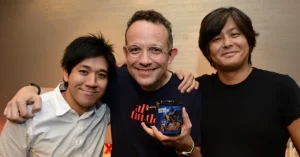日本と海外
Russian wedding
Dmitry
A traditional Russian wedding lasts for at least two days and some weddings last as long as a week. Throughout the celebration there is dancing, singing, long toasts, and a lot of food and drinks. The best man and maid of honor are called witnesses, svideteli in Russian. The ceremony and the ring exchange takes place on the first day of the wedding. Russian weddings also have adopted some of western traditions, including bridesmaids and others.
Traditional wedding rituals
Paying the ransom
Once the groom arrives at the bride’s home, he must pay a ransom for the bride, a term in Russian known as vykup nevesty. The entire event is played out in a comical fashion and everyone is entertained. At first the groom comes and gives something (often money or jewellery) for the bride, and so the parents of the bride bring out a woman or man (the latter for amusement) that is not the actual bride, but is dressed up like one, covered in a veil, so the groom can’t see their face. When the groom realizes that it is not his bride, he asks for his love, but the family of the bride will demand a bigger ransom to be paid. So, upon satisfaction with the ransom given, the bride’s family gives away the bride to the groom.
Traditional Ceremony
In the next step, the bride and groom have an optional traditional ceremony in a church. In Russian this is called the “venchanie”.
Civil ceremony
Following the traditional ceremony, the couple must have a civil ceremony. This ceremony takes place at the department of public services, formally known as “wedding palace”. At this place, the couple is greeted by family members with bread and salt. The ceremony ranges from 15 to 30 minutes and during this time the rings are exchanged and the couple is pronounced to be husband and wife.
During the civil ceremony, the parents offer the married couple two crystal glasses, which they are asked to break. The more shards of glass they create, the greater the number of years of happiness they will spend together.
It is also customary for the married couple to release either balloons or, better, two white doves to symbolize their love and partnership which is written in the sky for all to see. And the bride also releases another balloon with her maiden name written on it, as she embarks on her new life.
Tour of the city
Following the civil ceremony, the newlyweds and their witnesses, travel around the city in a limousine and view many historical sights. Sometimes very close friends join as well. This presents the primary opportunity for the majority of the wedding photographs that are taken at varying historical places around the town or city.
Reception
After touring the city for several hours, the couple meets the guests for the reception.
- The first toast is made to the newlyweds and after the first shot, the guests begin to shout Gorko, Gorko, Gorko,…. Gorko means “bitter” and the guests are referring to the taste of life, vodka, etc. At this point the couple must kiss for a long time to take out the bitter taste and make it more sweet.
- The second toast is usually made to the parents.
- The new couple dances the first dance of the night.
- As the night continues the guests dance, sing, play games, jokes, and, of course, make toasts.
- Some jokes may include stealing bride (or even groom), usually made by his or her friends; therefore, friend of the other side should keep looking on his/her spouse, prevent stealing, or, if it yet happend, somehow deal with situation (pay money, dance, etc)
- For the next several days, the new family most likely continues to celebrate.
- It is traditional to have an entertainer, in Russian “Tamada”, who organises games, the disco, and ensures the guests get to know each other and are looked after.
- In Russian wedding, it is allowed (and highly recommended) to present any kind of gifts for a couple, including money, amenities, childcare staff, etc, which probably should help them to start a new family.
 2025/01/10
2025/01/10 2024/03/01
2024/03/01 2023/12/01
2023/12/01 2023/06/23
2023/06/23 2023/02/24
2023/02/24 2022/12/16
2022/12/16 2022/06/24
2022/06/24 2022/06/17
2022/06/17